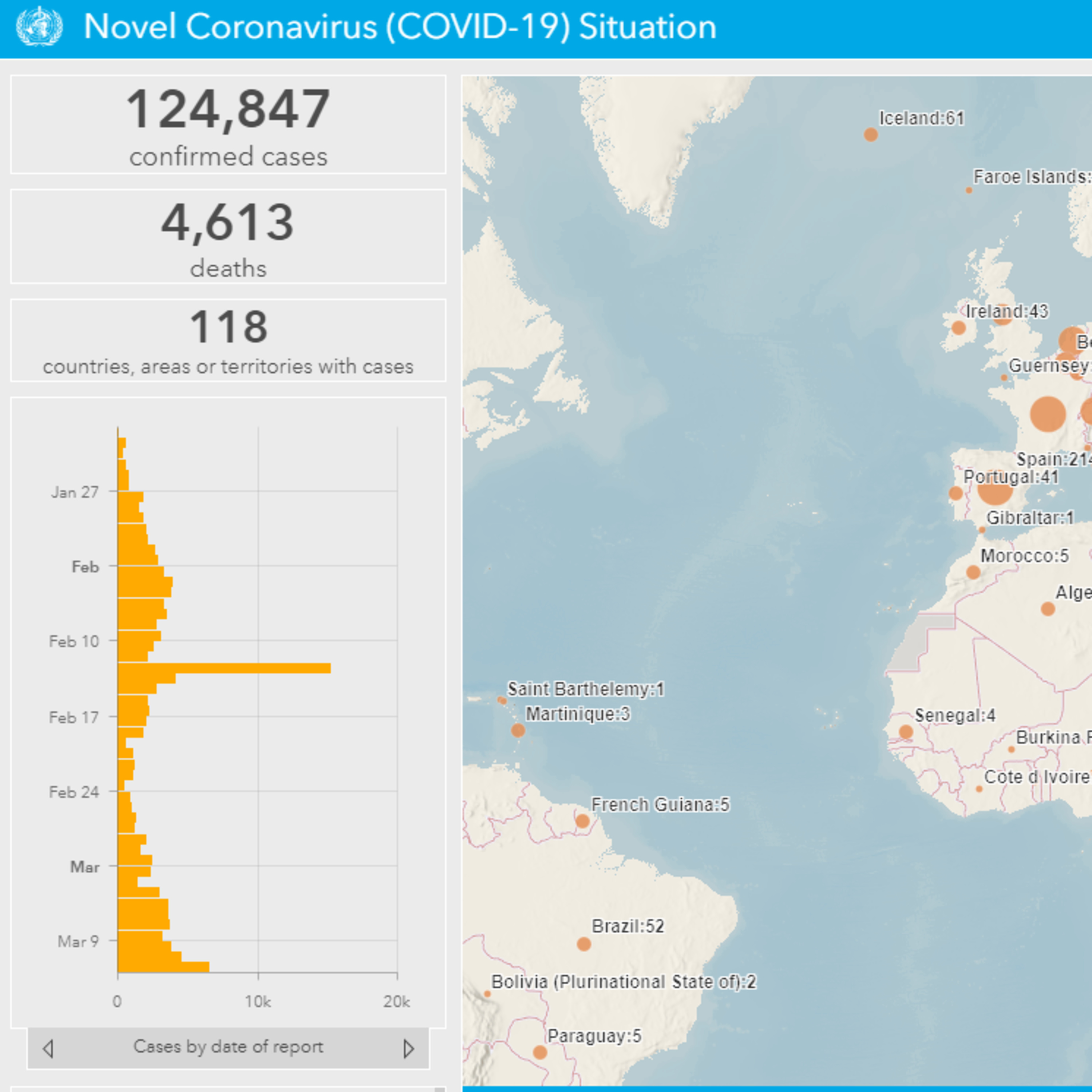Episode Description
About 1,311 people in the United States have been confirmed to have the virus, though many other cases may be undetected. Of those reported cases, 38 people have died, with 30 deaths in Washington, 4 in California, 2 in Florida, 1 in New Jersey and 1 in South Dakota. Globally, nearly 128,000 cases have been now confirmed, with 4,718 deaths.
So What is coronavirus disease 2019 ?
Coronavirus disease 2019 also called C O V I D 19, is a respiratory illness that can spread from person to person. The virus that causes coronavirus is a novel virus that was first identified during an investigation into an outbreak in Wuhan, China.
What are the symptoms of coronavirus?
Patients with coronavirus have had mild to severe respiratory illness with symptoms including:
- fever;
- cough;
- shortness of breath;
- Persistent pain or pressure in the chest.
- New confusion or inability to arouse.
- Bluish lips or face.
- There can also be severe complications of the virus. Some patients have pneumonia in both lungs, multi-organ failure and in some cases death.
So, How can you help protect yourself?
People can help protect themselves from respiratory illness with everyday preventive actions.
• Avoid close contact with people who are sick.
• Avoid touching your eyes, nose, and mouth with unwashed hands.
• Wash your hands often with soap and water for at least 20 seconds. Use an alcohol-based hand sanitizer that contains at
least 60% alcohol if soap and water are not available.
- Wash your hands after touching surfaces in public places.
- Clean and disinfect your home to remove germs: practice routine cleaning of frequently touched surfaces. for example tables, doorknobs, light switches, handles, desks, toilets, faucets, sinks & cell phones.
- Avoid crowds, especially in poorly ventilated spaces. Your risk of exposure to respiratory viruses like coronavirus may increase in crowded, closed-in settings with little air circulation if there are people in the crowd who are sick.
- Avoid all non-essential travel including plane trips, and especially avoid embarking on cruise ships.
- Do not go to work, school, or public areas.
- Avoid using public transportation, ride-sharing, or taxis.
Limit contact with pets & animals: You should restrict contact with pets and other animals while you are sick, just like you would around other people.
Do not share stuff: You should not share dishes, drinking glasses, cups, eating utensils, towels, or bedding with other people or pets in your home.
- Stock up on supplies.
- Take everyday precautions to keep space between yourself and others.
Please, we recommend to always consult your medical provider for any other symptoms that are severe or concerning.
For more information about the virus, visit the website www.cdc.gov.
Subscribe to this channel to receive updated news about the virus and other diseases to improve your health.
